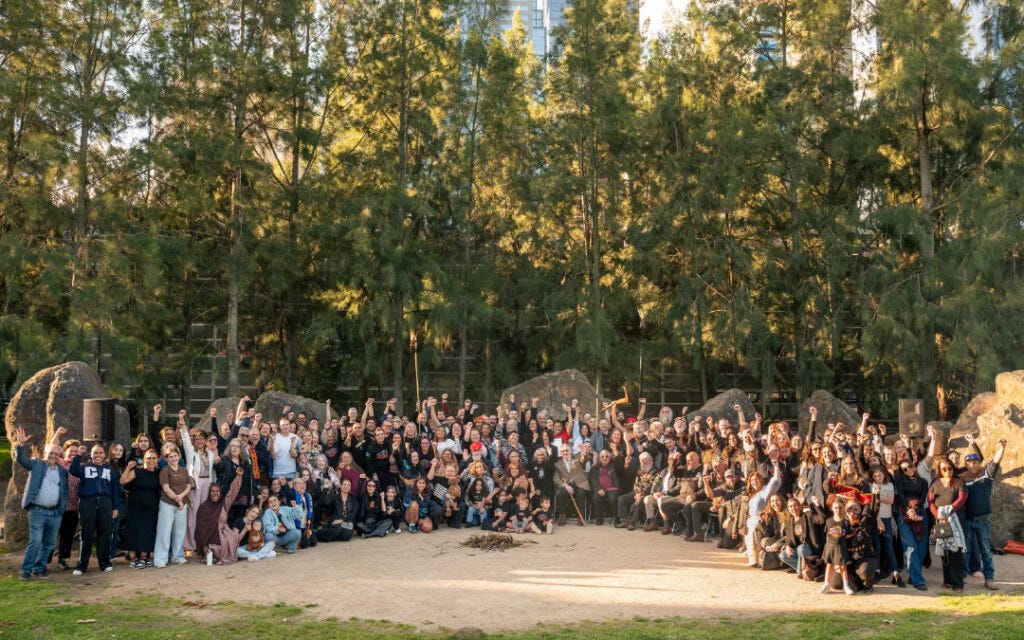On the banks of Birrarung
History all at once, the signing of the Treaty.
It is late afternoon, the sun leaning warm on my left shoulder. We’d gathered on the banks of Birrarung, beneath a small parade of She-oak trees, to witness something that had been imagined, fought for, and finally brought into being — the signing of Victoria’s first Treaty by members of the…



